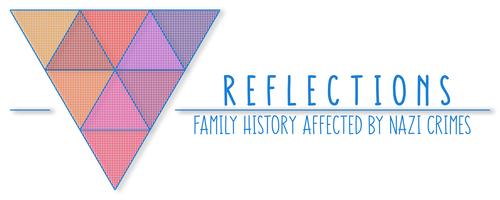We did not forget you!
It is a late evening in Montevideo in the 1990s. We see the bedroom of Mr. and Mrs. Kaplan where one of the most important scenes in the movie „Señor Kaplan“ is about to be played out. Half-sitting, half-lying in bed, Jacob Kaplan explains to his wife Rebecca why he wants to catch an old Nazi living under a false name and turn him in to Israeli authorities.
„We didn’t forget you!“ That is what he wants to be able to say upon meeting the millions of murdered Jews once he and his wife have gone over to the other “world”. Even though Jacob has to admit that the sentence was originally by Simon Wiesenthal, we can still see confidence and conviction reflected in Jacob’s eyes. In the same way as Wiesenthal contributed to Adolf Eichmann having been put on trial in Israel, Jacob now wants to do the same with the old „Nazi“ who runs the battered beach bar „Estrella“. Despite the importance of this scene, it has a very calm air to it, just like most parts of the film. With his always slightly disheveled hair, Jacob simply comes across as crotchety and is thus characterized as very unlike his beloved wife Rebecca who – even in her nightgown, but still well-coiffed – is the epiphany of a lady.

The „old Nazi“ © Neue Visionen Filmverleih
Eine zerstörte Gemeinde
Yet, the importance of this scene becomes clear in light one of the early scenes of the movie as we then have to assume that Jacob’s parents and a young sibling did not survive the Holocaust.
The film takes us to Poland in 1937. In a dimly lit, humble kitchen Jacob is sitting at a table with his parents. His mother is crying, holding a tiny infant. Jacob’s father hands him money, telling him to travel north to embark on a ship going to America. His mother’s promise, spoken in Yiddish, that the family will follow soon after will never come true.
„Yankele“ thus is no longer simply the yiddish diminutive that Rebecca uses to address her husband, but also a bond between him and his family and the community in which he grew up in. And Jacob might well be the only survivor of that community. Thus it becomes clear what a burden it must be for Jacob that already at his bar mitzvah his father and the rabbi told him that he – like his namesake – was special. Now, toward the end of his life, he is the only one who can avenge their lives.
Justice, not Revenge
However, it is not revenge, but justice which Jacob is seeking to obtain. The young rabbi leading the congregation that Jacob and Rebecca belong to in Montevideo talks in his sermon about an old Nazi having been arrested in another South American country. Two old acquaintances of Jacob comment that they would like to lynch the old Nazi. It is not surprising that two very unlikable men who have ridiculed Jacob’s sons for their personal and professional struggles in front of Jacob demand a treatment so against what Jacob has in mind. Prudently, adhering to his role model Wiesenthal, Jacob hisses that the man should be sentenced in a proper trial in Israel.
How to get the old Nazi to Israel though? Jacob can’t do it alone. Wilson, an ex-cop, is there to help, though. He is chubby with oily hair and a strong penchant for beer and pinball machines and does not seem to be the ideal Nazi hunter. Yet, in this movie, nothing is as it appears. First, his only task is to chauffeur Jacob around and doesn’t take the investigation too seriously. He has bigger things on his mind, that is, his wife and children are currently living with his brother-in-law. Yet, Wilson is thoroughly decent and has a pronounced sense of justice.

Jacob Kaplan and Wilson Contreras © Neue Visionen Filmverleih
While reading the records of the Eichmann trial Wilson has an idea. Yet, only with the help of Lottie, Jacob’s grand-daughter, is it possible for them to carry out the plan. With her grunge style apparel and the headphones she looks totally disengaged from the world, yet she is willing to make a big sacrifice for her grandfather’s sake.
Those who matter
Lottie‘s sacrifice is just one of many examples of the love and devotion the Kaplans feel for their patriarch. Even though nothing goes according to plan, Jacob can – surrounded by those who love him for who he is and not for his deeds – laugh. Auschwitz and what it stands for is part of his life, but it no longer defines him.
